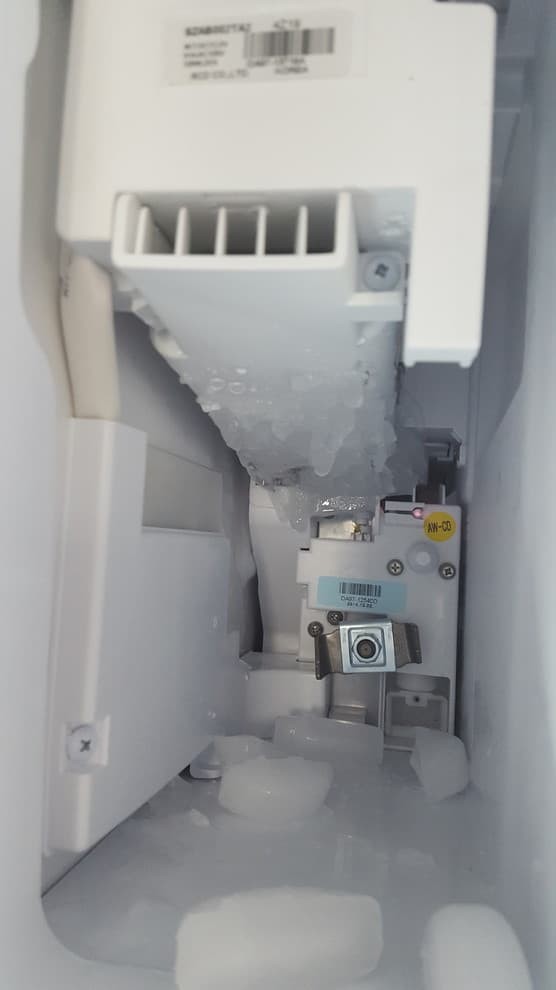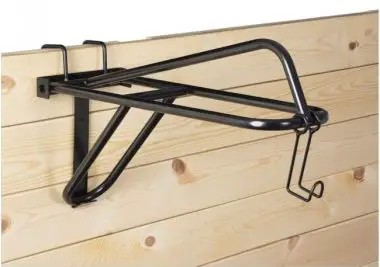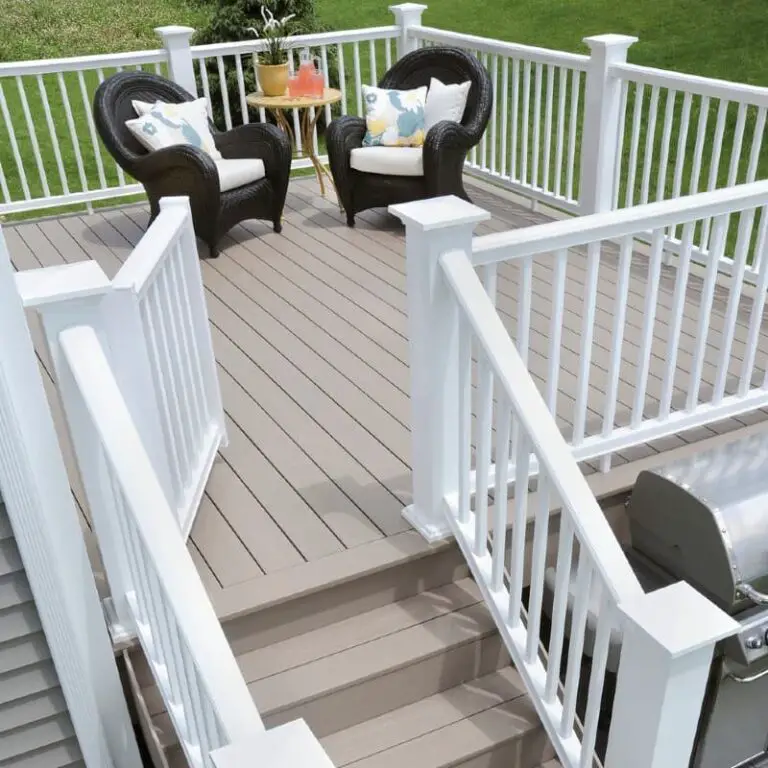14 Best Driveway Alternatives That Will Upgrade Your Curb Appeal
Are you looking for a way to elevate your home’s exterior? Ditching the ordinary asphalt or gravel driveway can be a great starting point. With numerous options available, choosing the perfect alternative can be overwhelming. In this post, we’ll explore 10 of the most popular alternatives, from stamped concrete to permeable pavers and beyond. Whether you’re seeking a unique look or a more practical solution, we’ve got you covered.
Asphalt
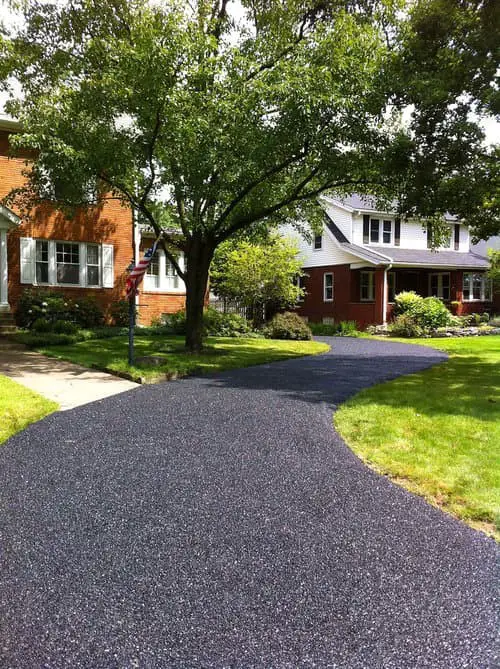
Asphalt, also known as bitumen, is a black, sticky substance derived from crude oil. When refined, it becomes a versatile material used in the construction of asphalt pavement. This mixture combines asphalt with aggregate, a blend of gravel and sand, which is then laid over a subgrade – a compacted layer of soil.
Asphalt pavement has become a staple for roads, driveways, and parking lots due to its durability and ability to provide a smooth surface.
Its relatively low installation costs also make it an attractive option. However, it does have some drawbacks. Firstly, asphalt is susceptible to damage from ultraviolet rays and requires regular sealing to protect it from the elements. Secondly, it can become slippery when wet and is also vulnerable to damage from snow and ice.
Basalt Pavers
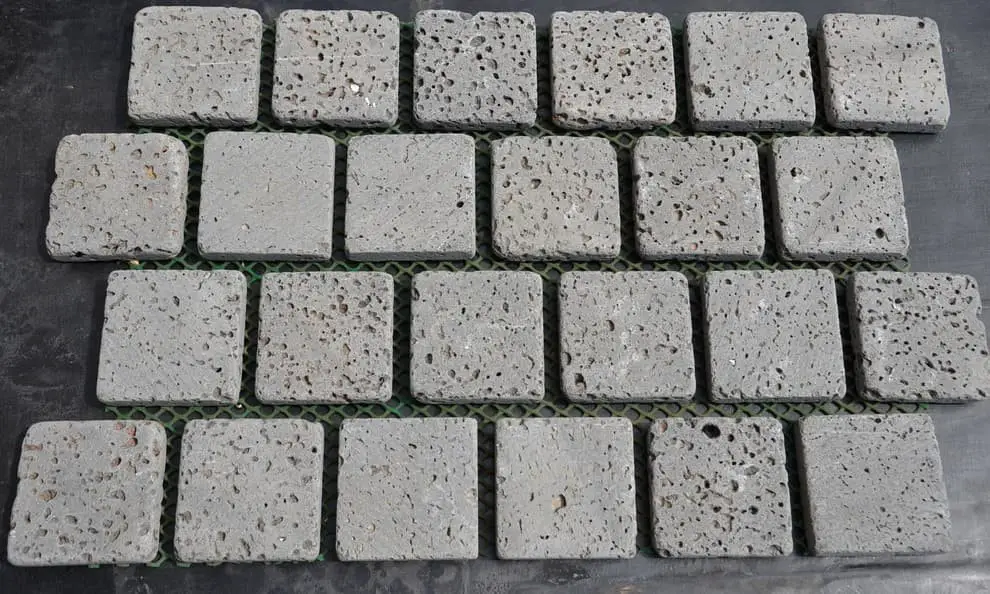
Basalt, an igneous rock renowned for its striking black or grey hue, boasts exceptional strength and durability. Its robust composition enables it to withstand the rigors of wear and tear, making it an ideal material for various applications. Basalt pavers are crafted by cutting thin slices from this resilient rock, which are subsequently polished and refined to produce a sleek surface.
The popularity of basalt pavers for driveways stems from their impressive strength, durability, and ability to tolerate extreme temperatures, rendering them suitable for use in diverse climates. Moreover, these pavers possess non-slip properties, making them an excellent choice for areas prone to moisture or ice. While basalt pavers excel in several aspects, there are some drawbacks to consider.
Their premium pricing sets them apart from other types of driveway pavers, and their availability might be limited compared to more popular options. If a distinctive look is your primary concern, basalt pavers could be an attractive choice, but be prepared for the added expense.
Brick
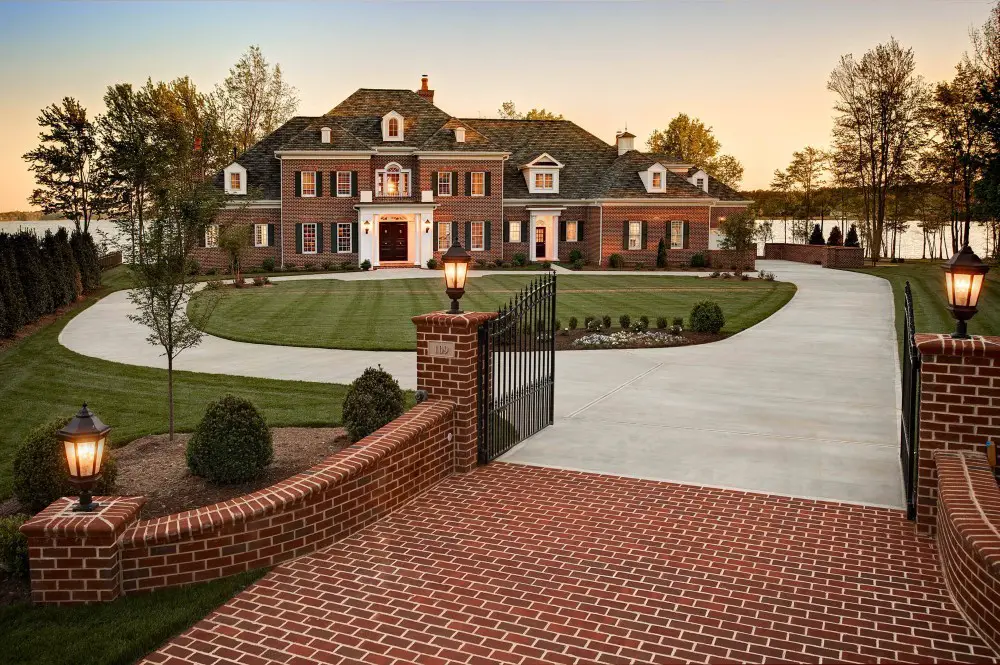
Brick, a common construction material, is characterized by its rectangular shape, with a composition of fired clay and mortar. The raw materials used in brick production include clay-bearing soil, sand, lime, or concrete materials, resulting in diverse classes, types, sizes, and regional variations. In terms of quantity, bricks are typically produced on a large scale. The advantages of brick as a construction material are numerous.
Its strength and durability make it an excellent choice for building structures that require robustness and longevity. Furthermore, brick offers exceptional fire resistance, ease of production, transportation, and recyclability. However, despite its benefits, brick also has some drawbacks. It is prone to weathering and staining, which can compromise its appearance over time.
Additionally, repairing damaged brickwork can be challenging due to the material’s inherent heaviness, which may impact construction costs and complexity.
Cobblestone
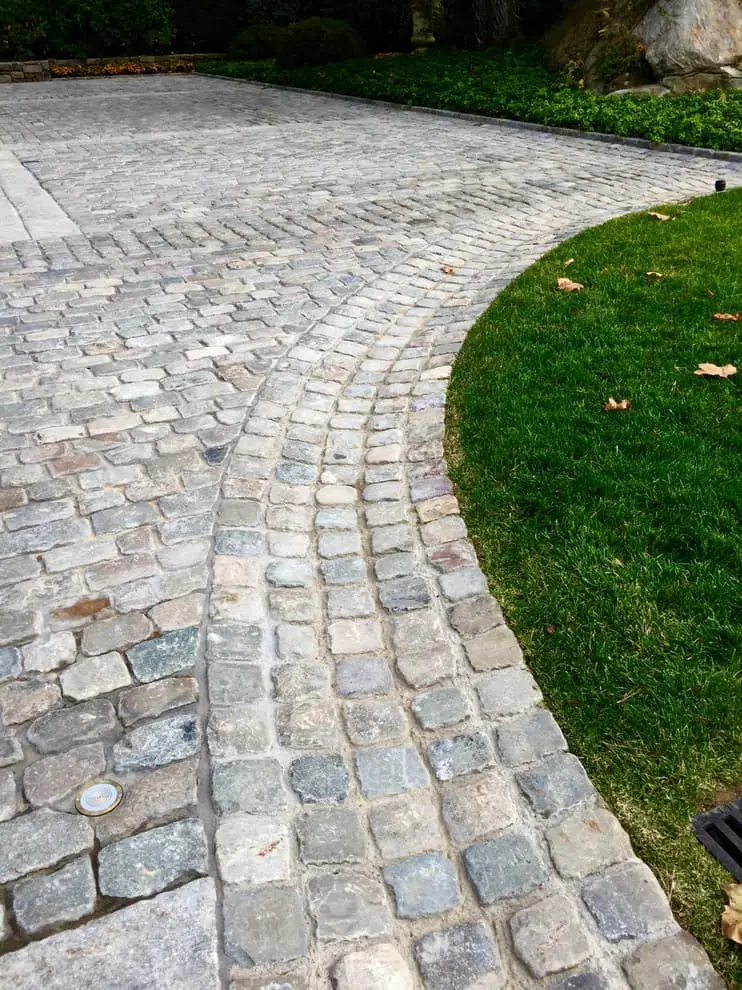
Cobblestone has been a trusted building material for centuries, used in constructing roads, walls, and other structures. Its enduring popularity stems from its versatility, durability, and eco-friendly nature. While cobblestone can be a stunning addition to driveways, patios, and outdoor spaces, it’s essential to weigh the benefits against the drawbacks.
On the plus side, cobblestone boasts exceptional durability, capable of withstanding the test of time with proper care.
It also requires minimal maintenance, making it an attractive choice for homeowners who value low upkeep. Furthermore, cobblestone can seamlessly integrate into a variety of design styles, from classic to contemporary.
However, there are some drawbacks to consider. Cobblestone can be a costly investment, both in terms of purchase price and installation costs. Additionally, the material can be challenging to install, potentially requiring professional expertise.
Finally, its considerable weight necessitates careful consideration for homes with fragile foundations.
Concrete
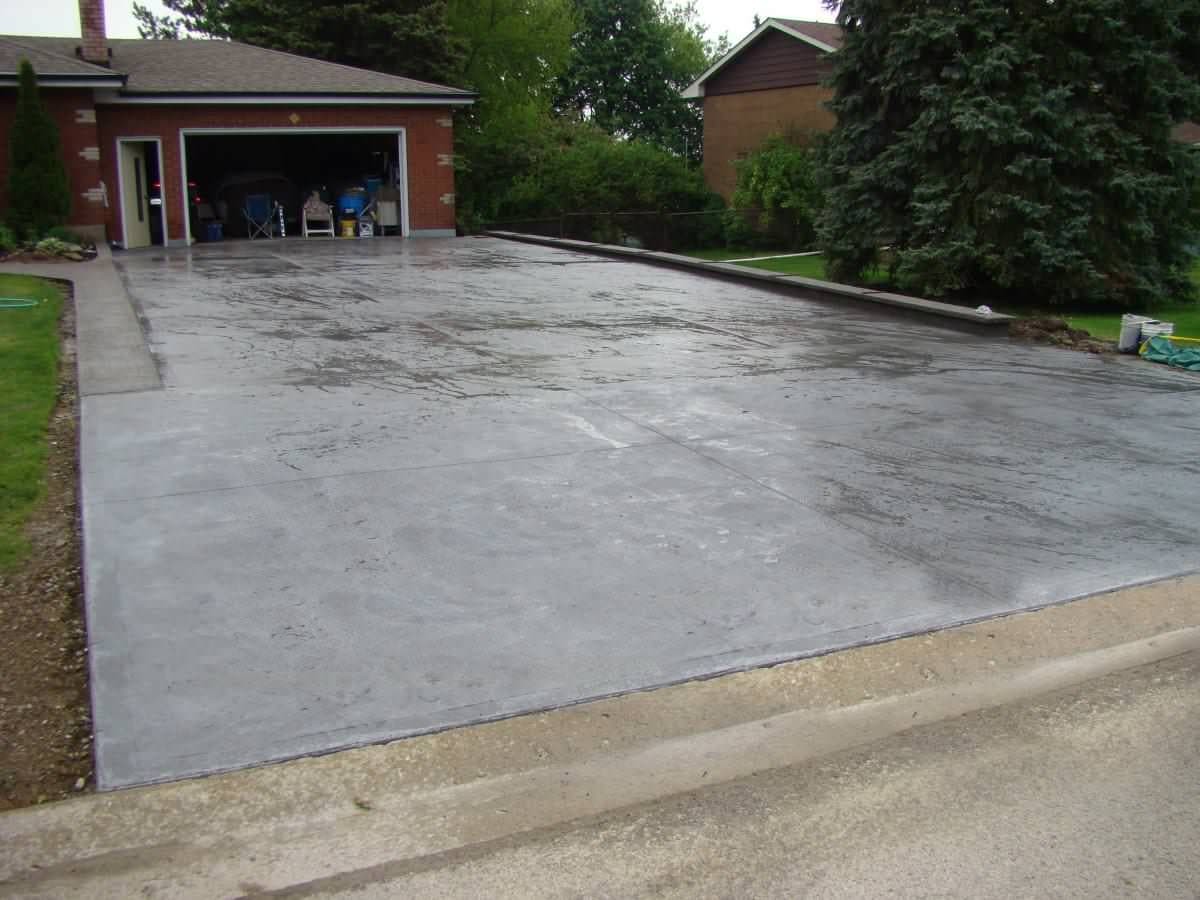
Concrete, a composite material comprising fine and coarse aggregates (such as gravel, sand, or crushed stone), a binder (either natural or synthetic cement), chemical admixtures, and water. The aggregates account for 60-75% of the concrete’s volume and 70-80% of its weight. While this mix may seem straightforward, it allows for a range of benefits and drawbacks.
On the positive side, concrete surfaces can be elevated with vibrant colors, intricate stamped patterns, or exposed aggregate, giving them an undeniable aesthetic appeal. Moreover, concrete is incredibly versatile and can be used in a multitude of applications, from construction to artistry. Its durability also ensures a long lifespan, provided regular maintenance is performed. In fact, with proper care, concrete can endure for decades.
Furthermore, concrete is relatively low-maintenance and easy to look after. Additionally, it has the potential to be environmentally friendly, as it can be created using recycled materials. This eco-friendliness makes it an attractive option for those seeking sustainable building solutions.
However, there are some drawbacks to consider. As a porous material, concrete is prone to absorbing stains and discolorations.
Additionally, it can be susceptible to cracking and breaking due to various factors such as weather conditions or structural stress. Furthermore, when wet, concrete surfaces can become slippery, posing a risk of accidents. Lastly, extreme temperatures, like those caused by freezing, can cause damage to the material.
In conclusion, while concrete presents some limitations, its versatility, durability, and potential environmental benefits make it an attractive option for many applications.
Grass
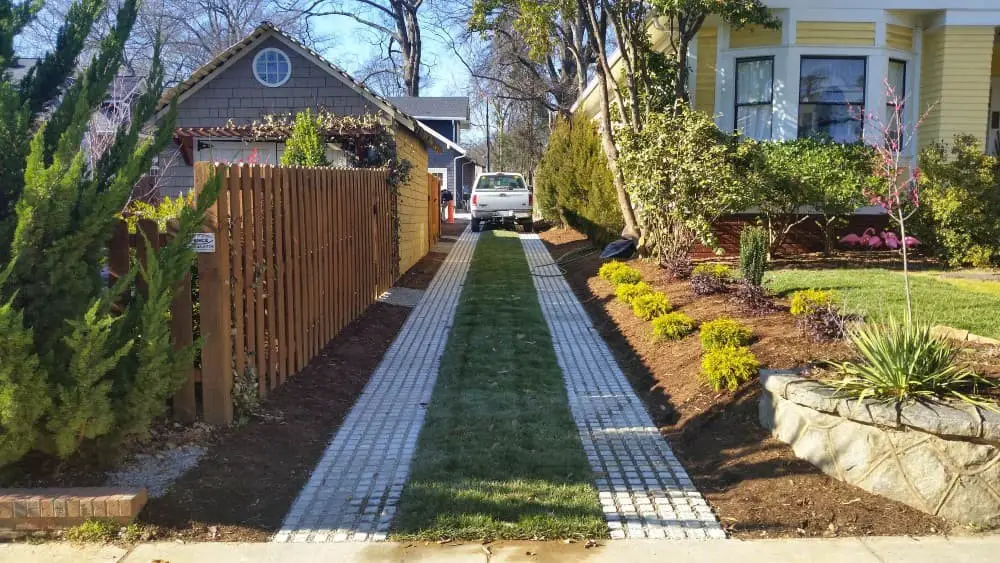
Grass, a ubiquitous plant found globally, boasts an astonishing array of species, textures, and colors. Its widespread presence has led to its popularity as a landscaping choice, thanks to its relatively low maintenance requirements. While traditional concrete or asphalt driveways are still prevalent, grass driveways have emerged as a novel alternative in recent years. As the name suggests, this innovative design features a driveway constructed from natural grass.
Gravel
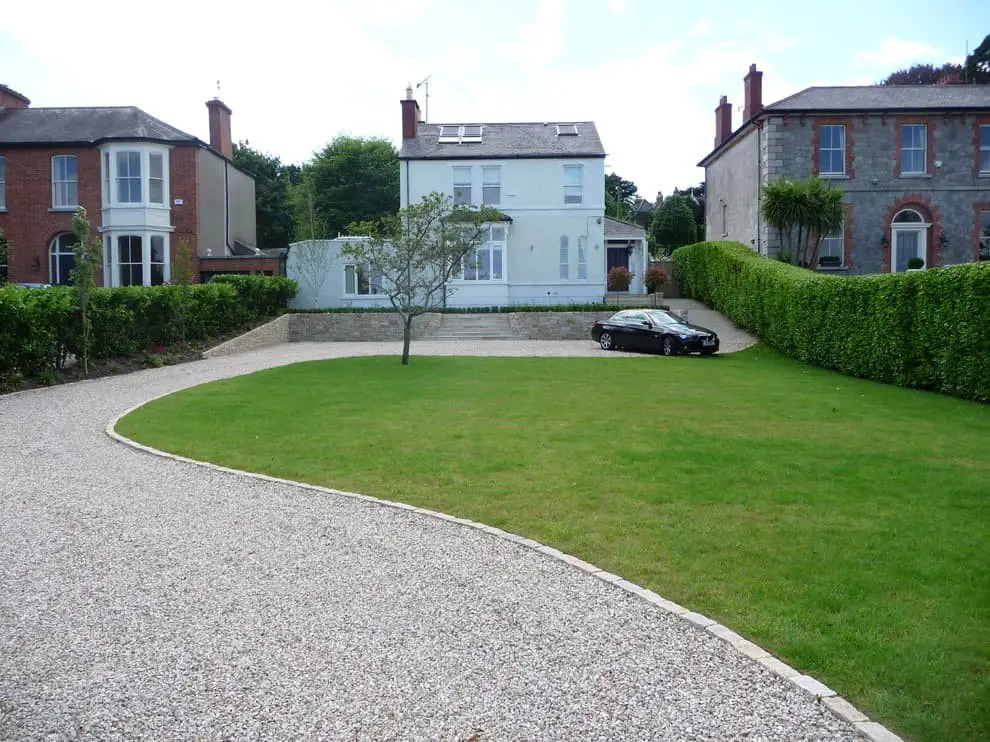
Gravel, a versatile aggregate material, is often sourced from riverbanks, streams, and sandy areas for various construction purposes. Its applications span driveways, patios, walkways, and more. The two primary types of gravel are crushed stone and pea gravel, with the former being produced by breaking down rocks through machines called crushers, while the latter features smaller, rounded particles.
Gravel offers several advantages: it is a cost-effective alternative to concrete and asphalt, requires minimal upkeep, is durable, and easy to install. Additionally, its permeable nature makes it an excellent choice for drainage purposes, allowing for creative design possibilities.
Despite these benefits, gravel also presents some drawbacks. For instance, it can be messy, with tracking into the house being a potential issue. Winter shoveling may also prove challenging.
Furthermore, if not installed correctly, gravel can shift and settle over time.
Interlocking Pavers
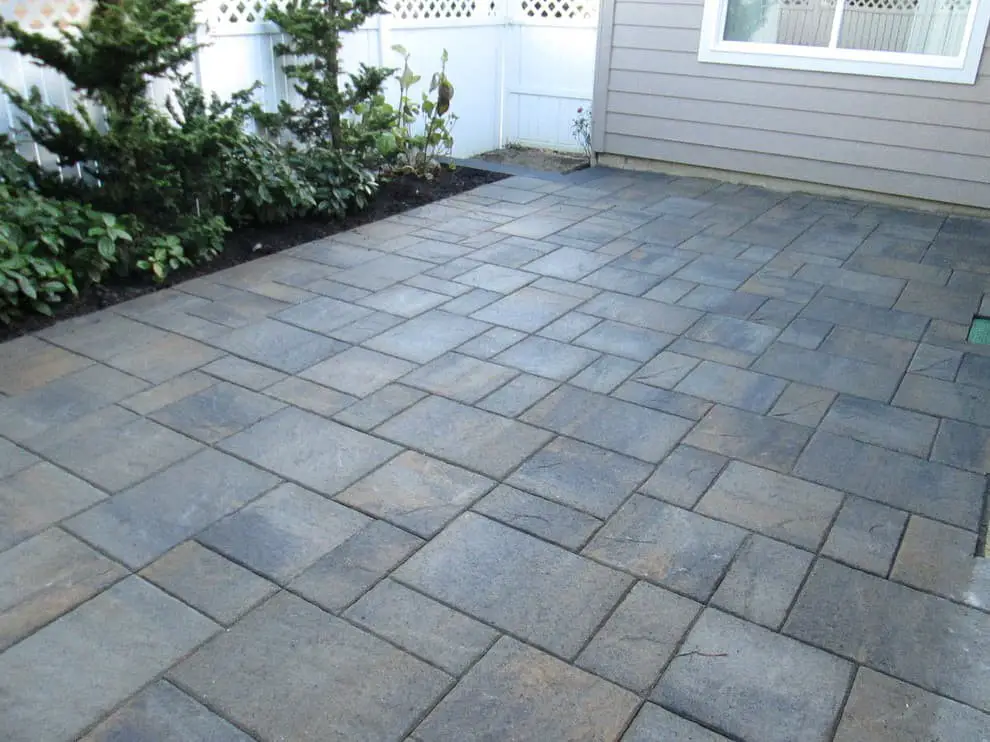
Interlocking pavers are a type of paver that has been engineered to seamlessly connect with other pavers, creating a sturdy and level surface. This unique feature is available in various materials such as concrete, brick, stone, and clay. The benefits of using interlocking pavers for driveways or outdoor spaces are numerous. They are less prone to settling or shifting over time, ensuring a stable and even surface.
Moreover, they provide excellent drainage, eliminating the concern of puddles forming on your driveway after a rainstorm. Furthermore, repairing damaged interlocking pavers is relatively straightforward – simply remove the affected paver and replace it with a new one. However, it’s essential to consider some drawbacks as well. Interlocking pavers can be more costly than traditional options, and if not installed properly, they may still shift or settle over time.
Additionally, these pavers require more maintenance compared to traditional ones, as the joints between them can become clogged with dirt and debris. Regular cleaning and sealing of the pavers are crucial to prevent this issue.
Permeable Pavers
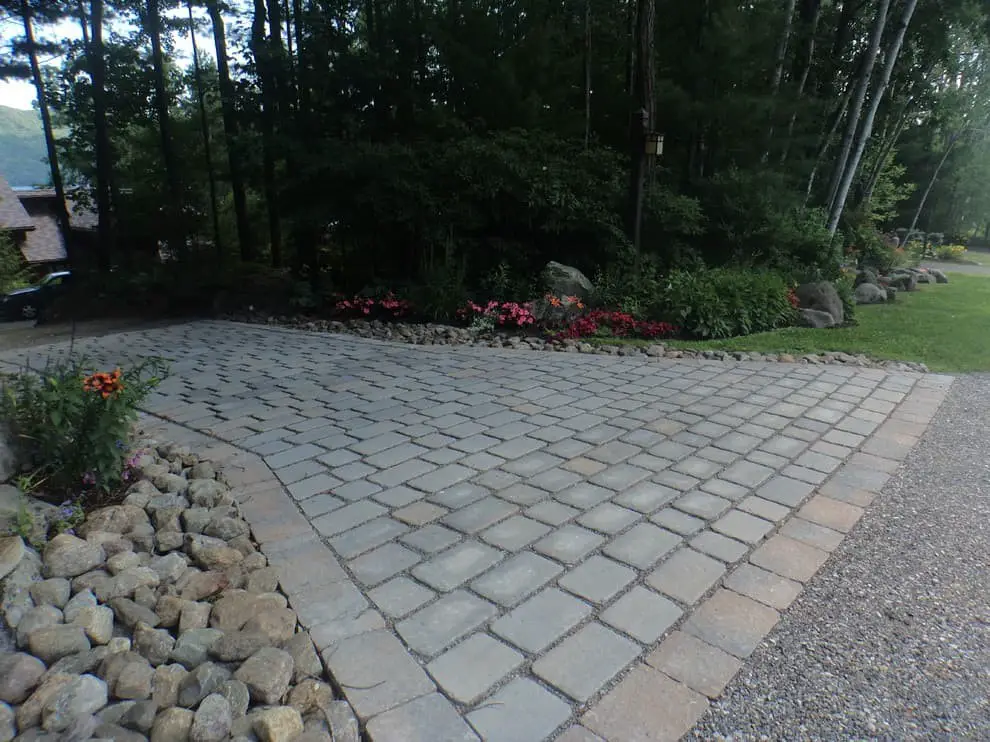
Permeable pavers offer a unique solution for managing stormwater runoff, allowing water to percolate through the material rather than pooling on the surface. This is achieved either by incorporating gaps between individual pavers or utilizing porous materials for the pavers themselves. The primary advantage of permeable pavers lies in their ability to mitigate flood risks and recharge groundwater levels, a crucial consideration in regions plagued by drought.
While permeable pavers present several benefits, they also come with some drawbacks. For instance, they can be more costly than traditional paving options and require more upkeep, as the gaps between pavers need to remain debris-free. Furthermore, permeable pavers are not universally suitable for all weather conditions, as they can be susceptible to damage from extreme temperatures or heavy traffic.
Poured Concrete
Poured concrete, a type of cement-based mixture, is a popular choice for creating specific shapes and designs. Its applications are vast, often used for driveways, sidewalks, patios, and other outdoor areas where durability and low maintenance are essential. This material boasts impressive strength and longevity, with the right care it can withstand the test of time.
One of its greatest advantages lies in its adaptability – poured concrete can be colored, textured, or stamped to create a unique aesthetic that complements any surrounding environment. Furthermore, it requires minimal upkeep, eliminating the need for frequent sealing or staining. However, like all materials, poured concrete is not without its drawbacks. Installation costs can be substantial, and once laid, the material becomes a permanent fixture.
This means that if you decide to alter its appearance or replace it altogether, significant renovations are often necessary.
Recycled Materials
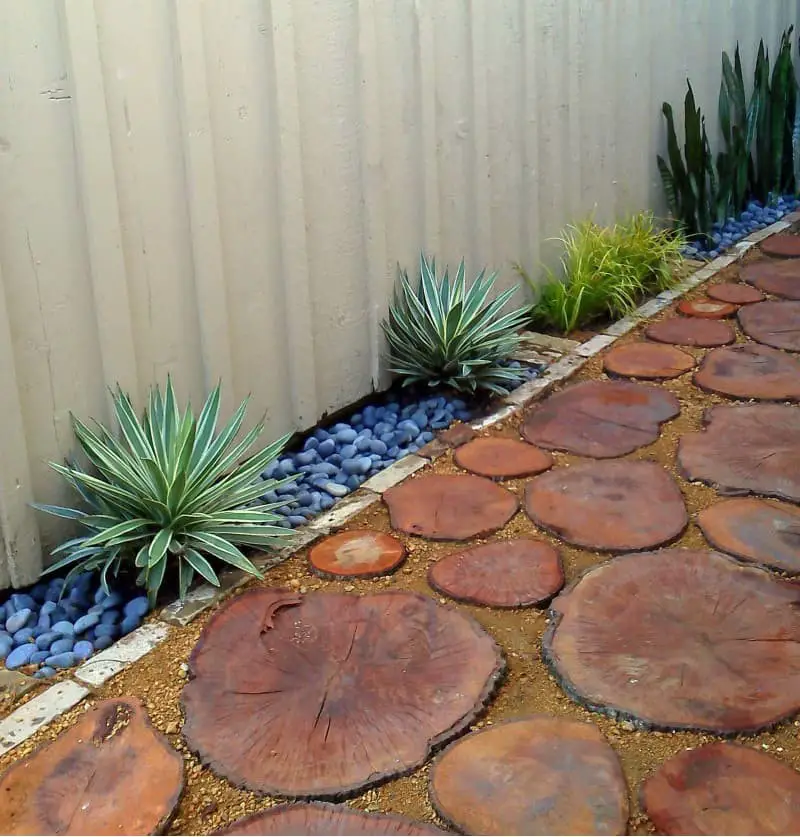
The concept of recycled materials refers to items that have been repurposed or reprocessed from their original function. This encompasses a broad range of materials, including paper, glass, metal, and plastic. By recycling these materials, we not only reduce pollution and waste accumulation in landfills but also breathe new life into products that would otherwise be discarded. The advantages of utilizing recycled materials are multifaceted.
For instance, it decreases the environmental impact associated with producing novel products, conserves natural resources by requiring less energy and water to manufacture, and can even prove cost-effective as recycled materials often are cheaper than their non-recycled counterparts. However, there are also some challenges to consider. Recycled materials may occasionally lack the quality of their non-recycled alternatives.
Furthermore, identifying suitable recycling facilities for specific materials can be a hurdle, making proper recycling difficult. Additionally, public awareness and acceptance of the benefits of recycled materials can be limited, posing a challenge in promoting their adoption.
Shell driveway
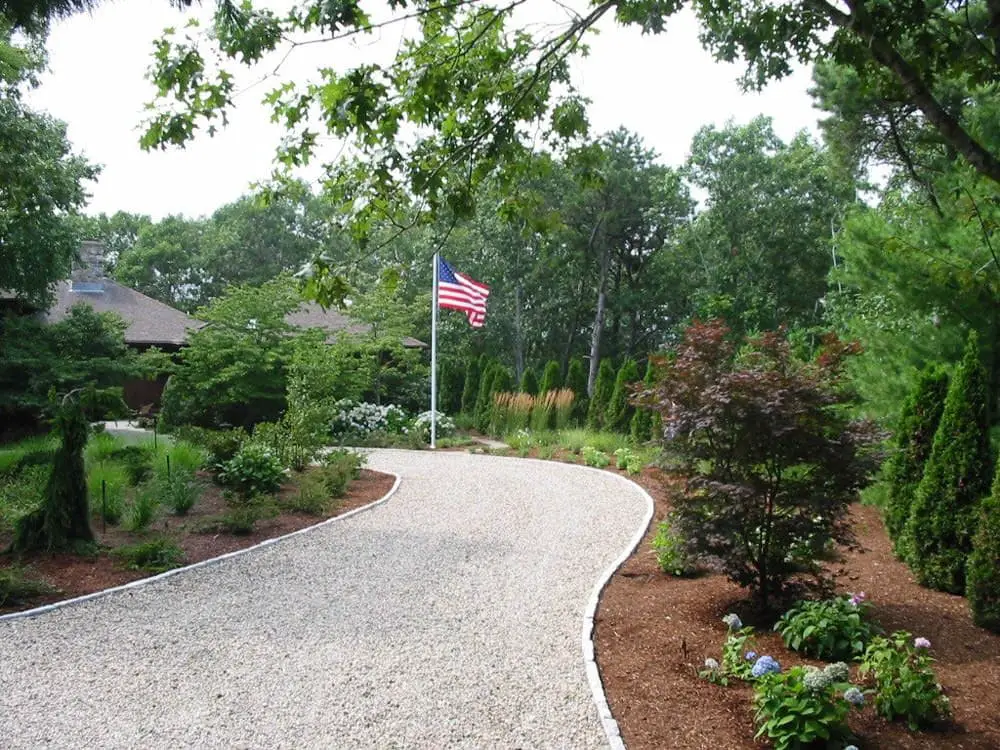
Shell driveways have gained popularity for their one-of-a-kind visual appeal and numerous advantages. Instead of traditional gravel, these driveways feature small shells as the primary material. One of the most significant benefits is their low maintenance requirements, which means homeowners can enjoy a hassle-free experience. Additionally, shell driveways are an affordable option compared to other driveway types, making them an attractive choice for those on a budget.
Furthermore, these driveways contribute to a more environmentally friendly home by reducing carbon emissions and promoting sustainability. They also boast impressive durability, with the potential to withstand wear and tear for many years if properly cared for. However, it’s essential to consider some potential drawbacks. Installation can be a complex process that may necessitate professional assistance.
Moreover, shell driveways may be more prone to erosion compared to other types of driveways. Finally, when wet, these surfaces can become slippery, emphasizing the need for caution while walking on them.
Stamped Concrete
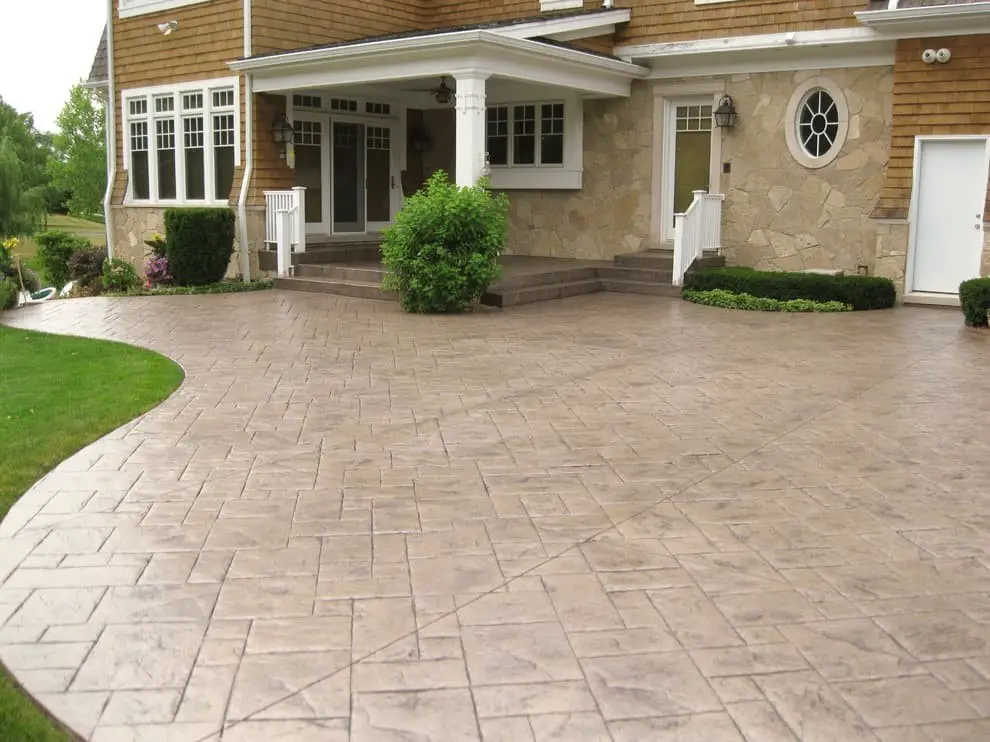
Stamped concrete is a unique type of concrete that can be designed to mimic various natural materials like stone, brick, or wood. Its versatility has made it a popular choice for outdoor spaces, including patios, driveways, and walkways. The material’s capacity to replicate different textures and patterns allows homeowners to achieve a specific aesthetic without the hefty price tag of genuine stone or brick. The process of creating stamped concrete is relatively straightforward.
First, the concrete mixture is poured into the desired shape and allowed to dry. Once it has reached the desired consistency, a template is placed on top, and specialized stamps are used to imprint the desired design onto the wet concrete. The stamps are then removed, allowing the concrete to fully dry. While stamped concrete offers several advantages, including affordability, durability, and ease of maintenance, it’s not without its limitations.
For instance, cracked or chipped surfaces can be challenging to repair, and the material may also be prone to staining and fading over time. Despite these potential drawbacks, stamped concrete remains a popular choice for those seeking a cost-effective, low-maintenance solution that can replicate the look of more expensive materials. It’s an ideal option for homeowners who want to achieve a specific design without breaking the bank.
Tar & Chip
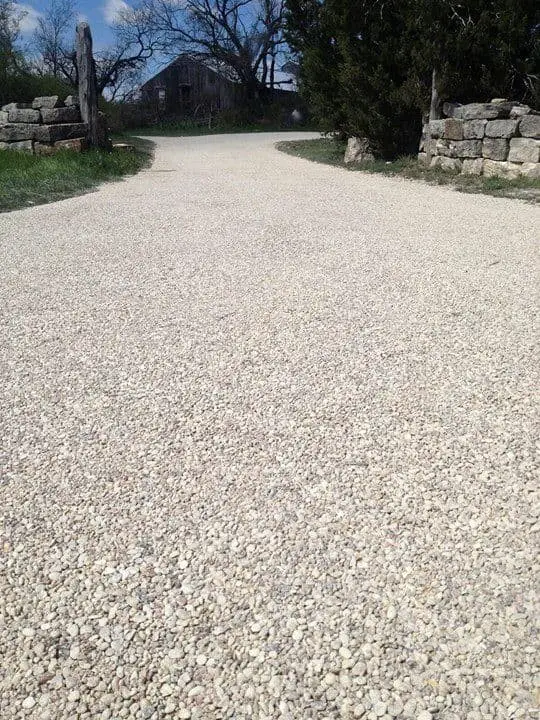
Tar and chip, also known as chipseal, combines hot tar with aggregate chips to create a durable yet flexible surface. As a low-cost option for paving driveways, it can provide numerous years of use if properly maintained. This method can also be used to resurface existing paved surfaces. The process of applying tar and chip typically involves a professional contractor applying a layer of hot tar to the surface, followed by spreading aggregate chips over the cooled tar.
The chips are then compacted into the tar. The process can be repeated to achieve the desired thickness of chips, after which the surface is left to cure for several days before it’s ready for use. When properly maintained, tar and chip paving can last for many years. It’s essential to regularly sweep the surface to remove loose chips or debris, as well as seal the surface every few years to protect it from the elements. There are several advantages to using tar and chip paving.
Not only is it a low-cost option, but it also provides a durable and flexible surface. Additionally, the process is relatively quick and easy, with most jobs taking just one day to complete and the surface ready for use within a few days. However, there are also some disadvantages to consider. The finished product may not be as smooth or uniform as other types of paving, and it can be challenging to repair if damaged.
Furthermore, tar and chip does not offer the same level of traction as other types of paving, which can be an issue in areas that experience heavy snowfall and ice.
Driveway alternatives to asphalt.
While asphalt remains a popular choice for driveways, there are several alternative options to consider. Concrete, gravel, and brick pavers are just a few examples of materials that can provide a durable and long-lasting surface for your driveway. However, each has its own unique characteristics that should be taken into account when making a decision. Concrete is often the go-to choice for driveways due to its durability and ease of maintenance.
While it may require an initial investment, it can withstand the test of time with minimal upkeep required. On the flip side, concrete installation costs can be steep, and it’s not immune to cracking in cold weather conditions. Gravel, on the other hand, offers a more budget-friendly option that’s relatively easy to install. However, its maintenance requires regular cleaning to prevent debris buildup, and its durability pales in comparison to concrete.
If you’re looking for a low-cost solution with minimal hassle, gravel might be the way to go. Brick pavers present another option that’s often overlooked. While they may come with a higher price tag than gravel, their installation process is surprisingly straightforward. Moreover, they boast impressive durability and low maintenance requirements. The only drawbacks are the potential for staining and the slightly rougher texture compared to concrete or gravel.
Driveway alternatives to gravel.
When it comes to selecting the perfect material for your driveway, you’re spoiled for choice. From classic gravel options to modern alternatives like concrete and asphalt, there’s something to suit every taste and budget. Here are a few of the most popular driveway materials worth considering: Concrete is renowned for its durability and longevity, making it an excellent option for those who want a low-maintenance driveway solution that can withstand the test of time.
Asphalt, on the other hand, offers a perfect blend of durability, ease of installation, and a wide range of color options to suit your home’s aesthetic. Plus, its maintenance requirements are relatively minimal. Pavers are another crowd-pleaser in the world of driveway materials. Not only do they offer a stylish and customizable appearance, but they’re also easy to install yourself, making them an attractive option for DIY enthusiasts.
Driveway alternatives to paving.
When it comes to choosing a driveway material, many homeowners are looking beyond the traditional options. Whether you’re driven by environmental concerns or simply seeking a cost-effective solution, there’s no shortage of alternatives to traditional paving. For instance, concrete pavers have gained popularity due to their eco-friendly nature and durability. They’re also relatively easy to install, eliminating the need for professional assistance.
Another popular option is gravel, which offers an affordable and simple installation process. Additionally, gravel is a environmentally friendly choice, although its maintenance requirements can be higher than other options. If you’re seeking a low-maintenance alternative that’s both eco-friendly and visually appealing, grass driveways are worth considering. Their ease of installation and upkeep make them an attractive option for those looking to deviate from traditional paving methods.
Driveway alternatives to the tarmac.
While tarmac remains a popular choice for driveways, it’s not the only option available. In fact, there are several alternatives that can offer a unique look while still providing a functional surface. Concrete is one such alternative, offering a range of possibilities through stamping and staining techniques. This can result in a natural stone appearance or a more modern, sleek design. Additionally, concrete is both durable and easy to maintain.
Asphalt is another common driveway surface alternative, boasting a lower upfront cost than concrete and the ability to be installed quickly. However, asphalt does require more maintenance than its concrete counterpart and may develop cracks over time. For those looking for a more affordable option, gravel can be a viable choice.
Gravel driveways are incredibly inexpensive and easy to install, but they do come with the drawbacks of being difficult to maintain and less durable than concrete or asphalt.
Heated driveway alternatives.
When it comes to keeping your driveway and walkways clear of snow and ice during the winter, heated driveways are an effective solution. However, they can come with a hefty price tag. If you’re looking for a more budget-friendly alternative, there are several options to consider.
One approach is to utilize electric mats or radiant heat tapes. These can be placed beneath your driveway or walkway and work by melting snow and ice on contact.
To ensure safe operation, it’s crucial to properly insulate the mat or tape to prevent overheating, as well as have a reliable power source nearby.
Another option is to use chemical de-icers. These can be sprayed onto your driveway or walkway, helping to melt snow and ice. However, they must be used sparingly, as they can cause damage to concrete and other surfaces.
If you’re looking for a more DIY-oriented approach, there are also some simple solutions worth trying.
For instance, you can use kitty litter or sand to create traction on icy surfaces. Just be sure to clean up any remaining kitty litter or sand before it has the chance to melt into mud.
Blacktop driveway alternatives.
While the traditional blacktop driveway has its advantages, there are several alternatives worth considering. Concrete driveways, for instance, have gained immense popularity due to their exceptional durability and longevity, provided regular maintenance is performed. Another popular option is asphalt driveways, which offer ease of installation and repair, making them a practical choice for homeowners.
Gravel driveways, although less common, can be an attractive alternative for those seeking an affordable and stress-free installation process. Additionally, gravel’s low-maintenance requirements and potential lifespan of many years make it a viable option for those who value simplicity.
Conclusion
As you finish reading this guide, you’ll have gained valuable insights into the diverse range of driveway options available. Take your time to weigh the pros and cons of each alternative, considering key factors such as safety, cost, and visual appeal. By doing so, you’ll be well-equipped to make an informed decision that suits your home’s unique needs. With a bit of exploration, you should be able to find the ideal driveway solution for your property.
The journey ends here, but we hope this guide has been a valuable resource in your quest for the perfect driveway.
Related Posts
When it comes to choosing equipment for your farm business, there are several key considerations to keep in mind. First and foremost, you’ll want to consider the specific needs of your operation. Are you looking to expand your current capabilities or improve efficiency? This will help guide your decision-making process when selecting new equipment.
Additionally, think about the type of crops or livestock you’re working with – this can also influence what types of equipment are most relevant for your situation. Furthermore, don’t forget to factor in budget and maintenance requirements when making your choice. It’s also essential to research potential vendors and read reviews from other farmers who have used similar equipment before committing to a purchase.
By taking these factors into account, you’ll be well on your way to selecting the right equipment for your farm business.

